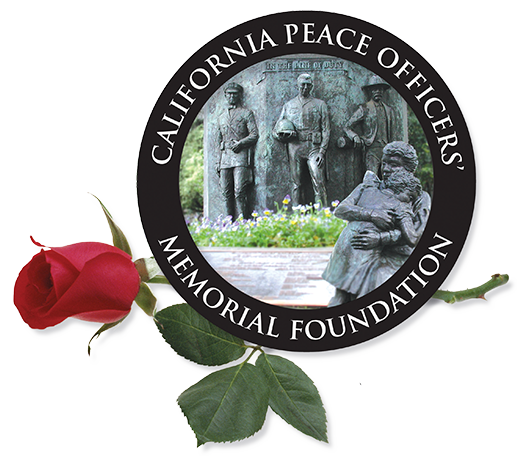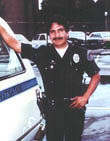Colorful eulogies echoed in the church.
Solemn banners fluttered along sidewalks.
White-gloved hands saluted crisply.
Chubby young fingers clutched American flags.
In ways planned and spontaneous, formal and casual, more than 3,300 people said goodbye to one of Orange County’s favorite police officers.
Tommy DeLaRosa, 43, was killed June 21, 1990 during an undercover attempt to sell suspected drug dealers what he promised would be $4 million worth of cocaine. Eight people have been charged with conspiracy to sell drugs and murder.
The wife, children, and colleagues DeLaRosa left behind were among those who jammed the First Evangelical Free Church of Fullerton. Most of the mourners were law enforcement officers, their badges partially covered by black mourning tape.
The officers, 2,500 of them, came in squad cars, buses, and vans from all over Orange County and much of Southern California. A large contingent drove in from Downey, where DeLaRosa died. As they filed into the church, the officers formed columns of navy blue, olive drab, and khaki, their black hat brims glinting like obsidian in the sun. Into the pews beside them came civilian adults and children and a group of men who, as did DeLaRosa, fought in Vietnam.
Priests prayed and an organ groaned during the service. DeLaRosa’s friends took most of the hour, reading eulogies that made the mourners cry and smile by turns.
“Tommy DeLaRosa was a great man, an outstanding dope cop,” Sgt. Joe Klein, a close friend and former partner of DeLaRosa, told the mourners. Klein said DeLaRosa wore many hats besides that of narcotics officer. “He was a great friend and partner, a husband, father, uncle, cousin, grandfather,” Klein said. “The most important thing in his life was his family,” he said, gazing at DeLaRosa’s three children and his widow, Leslie.
Off-duty, DeLaRosa liked to drive into neighborhoods heavy with drugs, gangs, and prostitution and speak to children. He would urge them to be good and stay in school, then give them money for ice cream or candy.
On duty, DeLaRosa “always liked to work the most-dangerous, the most-challenging areas of town,” Klein said. In his nine-year police career, DeLaRosa was “a ferocious, gallant warrior,” Klein said. “He was the best drug cop there ever was. The best anybody ever could be.”
Decrying the “ruthlessness” under which DeLaRosa died, Klein said the fallen officer was responsible for thousands of drug-related arrests and millions of dollars in drug seizures and drug-related property seizures.
On June 21, DeLaRosa faced every cop’s nightmare, said police officer and ordained minister Mike Fields. His attempted “reverse sting” operation got “out of control.” “We can take comfort in the fact that there is someone in control,” Fields said. “And that someone, God, has taken Tommy into his ultimate control.”
Monsignor John Sammon, considered the unofficial chaplain of all Orange County law enforcement officers, urged DeLaRosa’s colleagues not to feel guilty about what happened. “You did everything you could” he said. Now, he said, they must move beyond grief. “You should use Tommy as your standard of law enforcement. Our brother Tommy has gone to his peace with Christ,” he told mourners.

